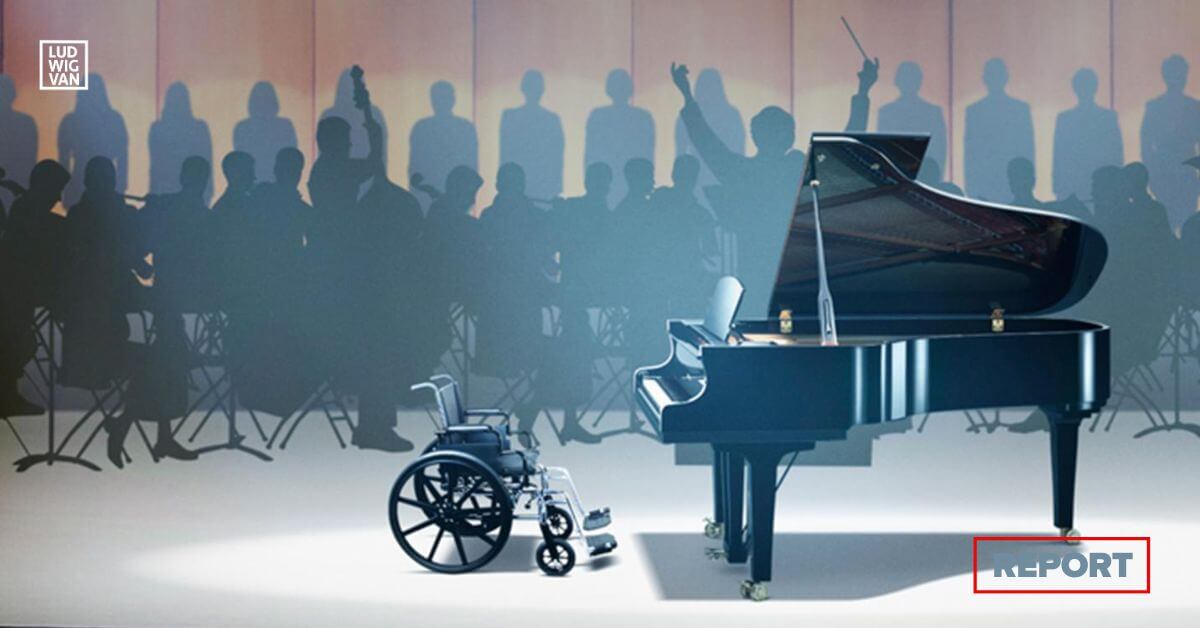
The Yamaha AI-assisted digital piano made its concert debut in December 2023 in Japan. Three disabled musicians participated in the Anyone’s 9th concert and showcase, performing with Yokohama Sinfonietta, The Philharmonic Chorus of Tokyo and conductor Satoshi Yoneda at Tokyo’s Suntory Hall.
The Yokohama Sinfonietta was founded in 1998, and has a long history of international performance and recording. The concert also marked Yahama’s celebration of the 200th anniversary of Beethoven’s 9th Symphony.
The Piano
While the repertoire for the piano continues to grow daily, with new music produced for the instrument in the classical music as well as most other popular genres, the instrument itself has not had much of a design overhaul in about a century. The concert pianos of today use largely the same kind of mechanical action, with a few improvements and modifications, as did the instruments of the late 19th century.
In the ensuing time, of course, the electronic and digital keyboard has gained the popular market, their portability and versatility key advantages — yet even digital pianos are judged on their ability to reproduce an acoustic piano’s keyboard action, and most are configured in exactly the same format.
Purists and digital enthusiasts can argue about the sound and keyboard configurations ad infinitum, but they’re missing a key point: insistence on adhering to or reproducing old technology is leaving the differently-abled community behind.
The world of music, and in particular, classical music, is notoriously indifferent to the needs of the disabled. Yet, so much research already tells us of the value to emotional and mental health that can come from participating in music making.
How can the two worlds come together? In this story, AI is the good guy…
Yamaha’s “Anyone’s 9th” concert:
Yamaha’s Anybody’s Piano
The piano they were playing has been dubbed Anybody’s Piano. Kiwa Usami, who lives with cerebral palsy, used one finger to play the piano. Artificial intelligence filled in the rest of the music to Beethoven’s Ode to Joy.
Usami began to play the piano as a young elementary school student; she and her passion for music, combined with her determined one-finger practicing, were one of the inspirations behind the AI program driving the piano. Her piano teachers took her example to Yamaha, and on their side, the Yamaha Corporation’s Research and Development Department collaborated with the Tokyo University of the Arts COI Center Inclusive Arts Research Group (Specially Appointed Professor Yoshiko Arai) to produce the auto-playing piano, which was first released in 2015.
Many electronic keyboards already exist which have the ability to play accompaniment to notes performed live, or to complete the score when the pianist plays only a portion of the notes. What’s different about Yamaha’s AI piano (an upgraded version of its Disklavier series) is the level of detail.
- It can adjust the speed and intensity of play dynamically, according to the live notes played;
- The piano tracks the performance of each of the disabled performers, and can follow their unique timing;
- It adjusts itself to follow the musician’s projected intentions and style;
- Ultra-low delay processing means that performers feel a sense of immediacy in the performance.
It works by tracking the notes played, and adds to the performance by filling in keys that aren’t being pressed, in other words. The piano fills in harmony, and anticipates the performer’s style. If the player hits an incorrect note, the AI stops playing until the correct one is depressed. The upgraded AI-powered Disklavier model that was used on stage is still under development.
“It’s a really powerful experience to play with an orchestra,” 10-year-old Yurina Furukawa, another of the three musicians, said after a rehearsal prior to the concert, as quoted in Japan Times. Furukawa lives with a rare condition called congenital myopathy which means she requires breathing assistance, and performs from a bed, pressing the keys with the back of her right hand. Yurina’s love of music began when she was a young child.
Hiroko Higashino, 39, is the third musician who was featured in the concert. She was born with three fingers on her right hand. Hiroko tried to learn piano previously, but gave up because of the inherent difficulties. She turned her creative spark to studying dance and vocal music at the university level, and worked as a trainer for musical theatre productions. She also performed at the opening and closing ceremonies of the Tokyo 2020 Paralympic Games.
The performances were nuanced and expressive, according to reports, and the audience was moved.
With the AI-assisted piano, as Yamaha’s blurb reads, “Anyone can be a musician if they have the passion.”
Imagine that.
#LUDWIGVAN
Get the daily arts news straight to your inbox.
Sign up for the Ludwig van Daily — classical music and opera in five minutes or less HERE.
- INTERVIEW | Composer Ari Kinarthy And Director Jeff Lee Petry Talk About Ari’s Theme, Premiering At Hot Docs - April 26, 2024
- PREVIEW | Creators & Performers Natalya Gennadi And Kristine Dandavino Talk About Grandma’s Shawl - April 26, 2024
- PREVIEW | Artistic Director Emily Cheung Dives Into Little Pear Garden Dance Company’s History & 30th Anniversary Peformance - April 26, 2024



